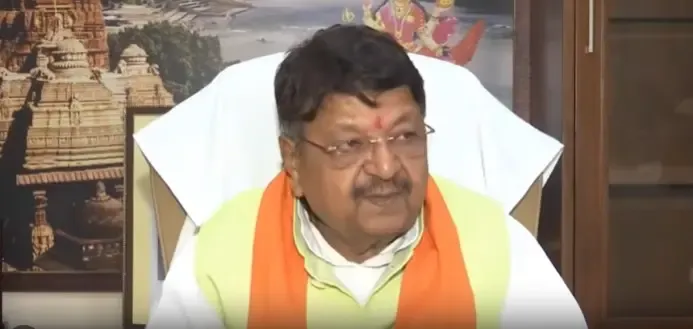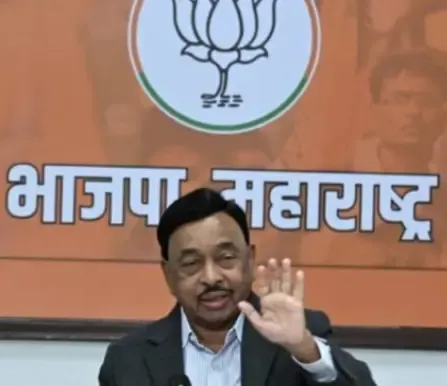Will Madhya Pradesh Follow Maharashtra's Lead with the Unified Pension Scheme?

Synopsis
Key Takeaways
- The Madhya Pradesh government is implementing the Unified Pension Scheme (UPS).
- A six-member committee has been established to develop the proposal for state employees.
- The UPS offers a fixed pension, enhancing retirement security.
- Employees with 25 years of service receive 50% of their average basic pay.
- The introduction of UPS presents a choice between it and the existing National Pension Scheme (NPS).
Bhopal, April 29 (NationPress) Following Maharashtra's initiative, the Madhya Pradesh government is set to implement the Unified Pension Scheme (UPS) for its workforce. The state cabinet has sanctioned the formation of a six-member committee tasked with assessing and crafting a proposal tailored for state employees under the UPS.
According to Kailash Vijayvargiya, the State Urban Development Minister, the committee includes esteemed civil servants such as Ashok Barnwal, Manish Rastogi, Lokesh Jatav, Tanvi Sundriyal, Ajay Katesaria, and JK Sharma.
This committee's primary role is to examine the guidelines provided by the Indian government and compile a comprehensive report based on their analysis.
This move is in line with the framework established by the Central government. While the adoption of the UPS is not obligatory for state governments, several states have willingly embraced the scheme for their employees.
Maharashtra was the trailblazer, becoming the first state to endorse and implement the UPS for its personnel.
The Unified Pension Scheme, launched by the Central government on August 24, 2024, commenced operations on April 1, 2025.
Planning for retirement is a vital financial choice, especially for government employees, and the introduction of the UPS offers them a decision – to remain with the existing National Pension Scheme (NPS) or shift to the newly introduced scheme.
The UPS signifies a major transformation by ensuring a fixed pension.
Employees with a service duration of 25 years or more will receive 50% of their average basic pay for the last 12 months preceding their retirement.
Those with a minimum of 10 years of service are guaranteed a monthly pension of Rs 10,000 post-retirement.
In the unfortunate event of the employee's passing, their family will receive 60% of the pension.
Conversely, the National Pension Scheme, initiated in 2004 to replace the Old Pension Scheme (OPS), operates on a market-dependent model.
Initially exclusive to government employees, the NPS expanded in 2009 to incorporate NRIs, self-employed individuals, and workers from the unorganised sector.
Unlike the UPS, the NPS does not promise a fixed pension.
Instead, the pension amount hinges on investment performance.
Participants make regular contributions to pension funds and can withdraw 60% of the accumulated sum in a lump sum at retirement, while the remaining is invested in an annuity plan for monthly payouts.
With the launch of the UPS, employees now find themselves at a pivotal juncture, balancing the reliability and security of the new scheme against the flexibility and market-driven potential of the NPS, as noted by a retired senior civil servant speaking to IANS.
The recommendations from the committee are expected to significantly influence the future of retirement planning within this structure.










